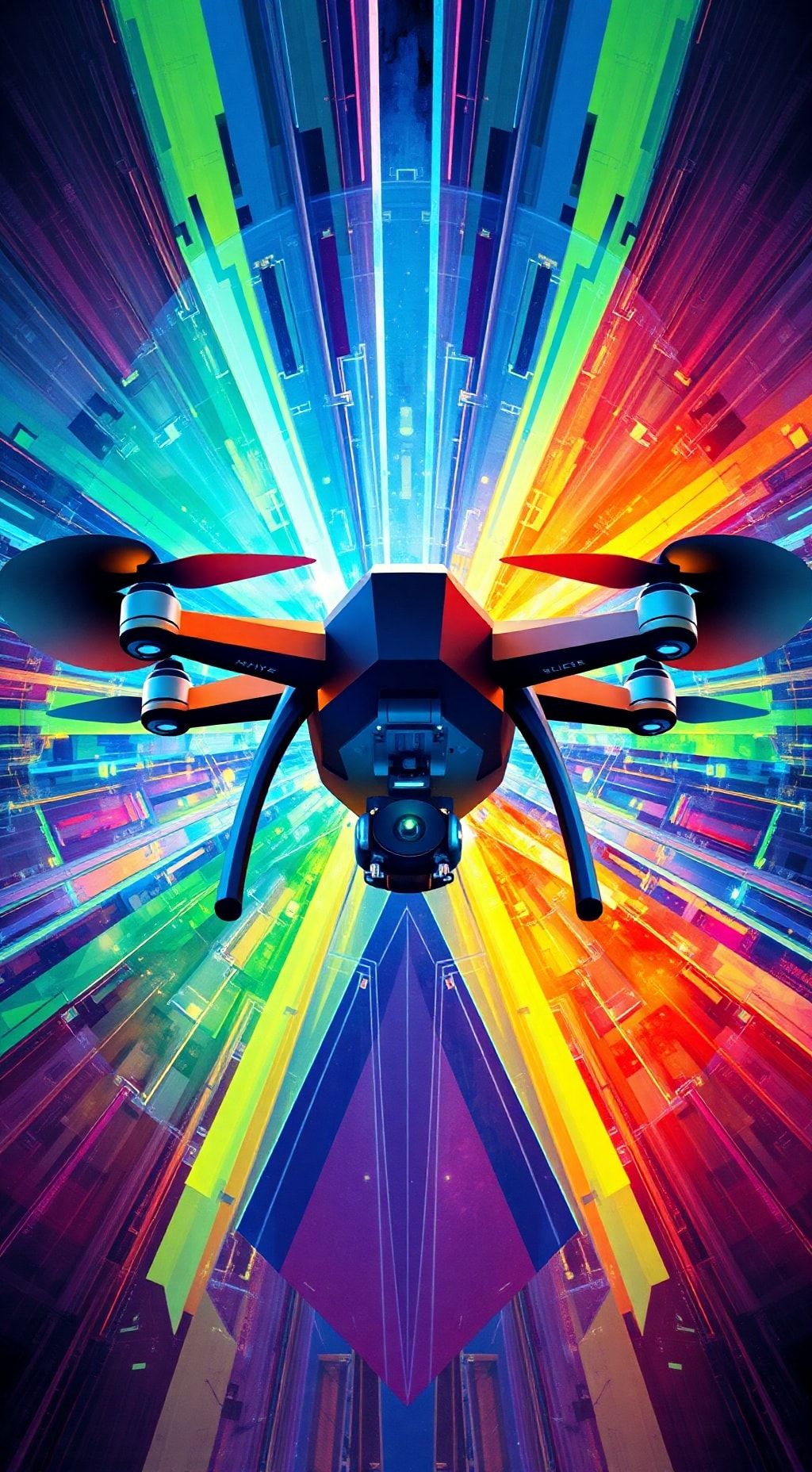Revolutionary Breakthrough: Ai Model Trains With Unprecedented Efficiency
Efficient Long-context Language Model Training by Core Attention Disaggregation Self-attention …
09. January 2025

Nevada’s New Drone Law: A Balance Between Public Safety and Agency Autonomy
As of January 1, 2025, Nevada Senate Bill 11 (SB11) has implemented significant changes to the use of unmanned aerial vehicles (UAVs) by public agencies and law enforcement in the state. The law aims to strike a balance between ensuring public safety and maintaining agency autonomy.
The law requires the Nevada Department of Public Safety (DPS) to create a list of restricted entities, including those identified by the U.S. Department of Defense as national security risks. DJI, a leading drone manufacturer, has been added to this list, effectively banning its use by public agencies.
Law enforcement agencies must now obtain a court warrant to use drones for evidence collection in areas where privacy is expected. These warrants are valid for 10 days and can be renewed if probable cause is shown. In emergency situations, such as search and rescue operations or response to imminent threats, drone use is permitted without a warrant. However, this exemption comes with strict guidelines to ensure public safety.
Public agencies are limited in their drone operations to specific purposes, including fire services, emergency medical services, and protecting critical facilities. They are prohibited from using drones for law enforcement investigations or criminal prosecutions. The law also restricts the collection of data during inspections, which cannot be used in legal proceedings unless directly related to the inspection.
The law establishes clear guidelines for evidence gathered by drones. Any information obtained unlawfully is inadmissible and cannot serve as the basis for further investigations. This provision aims to prevent agencies from using drone-generated data to build cases or prosecute individuals unfairly.
While some may see this new law as restrictive, it is essential to recognize its purpose: to protect public safety while ensuring that agencies operate within established guidelines. By implementing these regulations, Nevada has taken a proactive approach to managing the use of drones in public spaces.
The implementation of SB11 reflects a growing national trend towards regulating drone usage by public agencies and law enforcement. As more states adopt similar laws, it is crucial for agencies to stay informed about their responsibilities and adhere to established guidelines to maintain public trust and ensure the safe operation of drones.
The law’s emphasis on transparency and accountability is also noteworthy. The Nevada DPS must publish a list of entities subject to restrictions and make this information available to the public. This transparency aims to build trust between law enforcement agencies and the communities they serve.
In addition, SB11 has implications for the burgeoning drone industry, which will need to adapt to these new regulations. Manufacturers like DJI must reassess their products’ security features and develop more robust safeguards to prevent unauthorized use by public agencies.
The implementation of SB11 serves as a reminder that technology must be balanced with responsibility and oversight. By adopting this law, Nevada has taken a significant step towards promoting public safety while respecting agency autonomy. As the use of drones continues to evolve, it is essential for agencies and lawmakers to work together to develop effective regulations that prioritize both safety and individual freedoms.
Nevada’s new drone law is just one part of a broader conversation about regulating drone usage in public spaces. As this technology continues to grow, it is crucial for policymakers to strike a balance between innovation and responsibility.